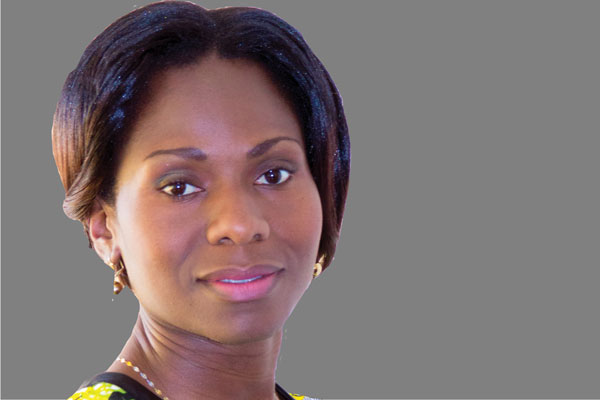
In the contemporary world, what has been exalted as progress in many instances has become the cause of much unrest and poorly reconciled lives.
By Cynthia C Hakutangwi
The erosion of socio-cultural and spiritual stability in the past three decades has led to a widespread life of delinquency.
This is also coupled with people continually re-inventing and re-tooling themselves for perpetual employability. On a broader analysis some of this is a result of pursuing a life packed with things that dulls senses but offer no cure to internal restfulness.
Some of the symptoms of lives that are not reconciled can be seen in double-standard impoverished values which are seen in the unreasonable pursuit to achieve goals in order to outshine others or the pursuit of intellectual accolades at the expense of practical wisdom. The symptoms can also be seen in the exploitative thirst for personal wealth without boundaries.
The problem with progress
Until very recently, most people had a blind faith in progress; we acknowledged that modern life brought problems but considered that such were inevitable and could be dealt with and eventually overcome. Over the past few years, however, discerning people have begun to ask, “What went wrong? With all the advancements we have made, life should be better.
Instead, many aspects of our lives are worse than they were just a few years ago. What happened?” Margin is “the space that once existed between ourselves and our limits.” When we reach the limits of our resources and abilities, we are out of margin. Progress, contrary to our expectations, is like Pacman; it incessantly eats up margin. Progress and margin are often opposing forces.
- Chamisa under fire over US$120K donation
- Mavhunga puts DeMbare into Chibuku quarterfinals
- Pension funds bet on Cabora Bassa oilfields
- Councils defy govt fire tender directive
Keep Reading
Examples abound of life without natural boundaries. Once it was a given that the night was for sleeping, and the day was for work. Now a hundred years after the electric light bulb, whole cities never sleep. Sunday was once a day of rest; nearly everyone had one day off from work. Now the boundaries between work and play and home and the office are so confused some people can never relax or let down.
Progress has a price tag
We have benefitted from progress in two main areas. First, we have seen positive gains in medicine, technology, and in our standard of living and material well-being. Second, our intellectual and educational opportunities have expanded enormously, and knowledge and information are increasing with unimagined speed. The pain that progress has brought us is evident in three areas.
First, we have lost ground in the social sphere as pressures have increased on all relationships: family, friendships, neighbourhoods, community spirit, and spiritual vitality. Second, we are often emotionally drained, stressed, angry, isolated, and frequently unfulfilled and don’t know what to do about these problems. Third, we are spiritually weakened by the pace of life, the lack of community, lack of time and energy to cultivate our relationship with our Creator and with our fellow man. This is the price we have paid for progress.
The problem of stress and overload
Because of the unprecedented level of problems today, people live with very high levels of stress. Stress is “the nonspecific response of the body to any demand made upon it”.
Note that stress is not the circumstance but the response to the circumstance. We normally think of such a crisis as the “fight or flight” reaction which pumps adrenaline into our system, makes us stronger and more alert, etc.
If these responses are occasional, there is little harm done, but if triggered too often or if “stuck” in a constant state of anger, rage, anxiety, fear, or frustration, we begin to overdose on our own adrenaline. This can bring about irreversible damage to the body and set it up for heart attack, stroke, cancer, etc.
Our stress levels are unprecedented. One reason is that most of us today experience constant mental strain without the offsetting benefits of strenuous physical work.
Closely related to stress is overload; in fact, overload is a primary cause of stress. Our culture adds detail on top of detail; one more choice, one more option, one more change, and the details never end. “We must now deal with more ‘things per person’ than at any other time in history. Yet one can comfortably handle only so many details in his or her life. Exceeding this threshold will result in disorganisation or frustration… The problem is not in the ‘details’. The problem is in the ‘exceeding’. This is called overloading.”
The facts are that there are physical limits and man has performance limits, emotional limits, and mental limits. We are overloaded with activities, change, choices, commitments, competition, debt, decisions, education, expectations, fatigue, information, media, ministry, noise, people, pollution, possessions, problems, technology, traffic, waste, and work.
So why do we overload? First, we are usually unaware of our overload until it’s too late. Second, some people are too conscientious. Third, others get overloaded because their bosses are driven people who overload their employees. Generally, people don’t intend to go down the path to overload; they just think that “one more thing won’t hurt”. But if they are at or near overload, it will hurt.
Strategies for reconciling personal, relational and public life
In order to produce stability which leads to optimum productivity, individuals should consider adopting the following strategies:
lDevelop clear personal vision, mission and values that reflect an integrated life.
lDefine parameters and identify specific skills needed to bring about balance in critical areas of daily life.
lFactor family and other vital relationships into their personal life plan.
lInvest resources wisely being mindful of priorities.
lEvaluate personal progress at regular intervals and make necessary adjustments.
It is of paramount importance that we regularly examine our lives because it is through this regular examination of all vital areas of life that we can maintain balance and enjoy optimum productivity.
A plan of action
The pain that progress has brought us is mostly in the area of our emotions, our relationships, and our spiritual vitality.
The road to health and blessing in the path of relationship. Love and relationships are hard work and sometimes costly because superfluous, unimportant things may need to be put aside, but the payoff is happiness, contentment, peace, and margin.
Are you struggling to say no to requests? By being honest with yourself and ruthless about your priorities, you can increase the likelihood that you stay happy and engaged at work and at home.
lCynthia Hakutangwi is a communications and personal development consultant, life coach, author and strategist. Looking at improving balance, energy, organisation, health fitness, relationships, focus, faith and happiness? Wholeness Incorporated Coaching offers you strategies and simple steps you can implement today to become a better, more balanced, happier version of yourself. E-mail: [email protected]. Facebook: Wholeness Incorporated.











